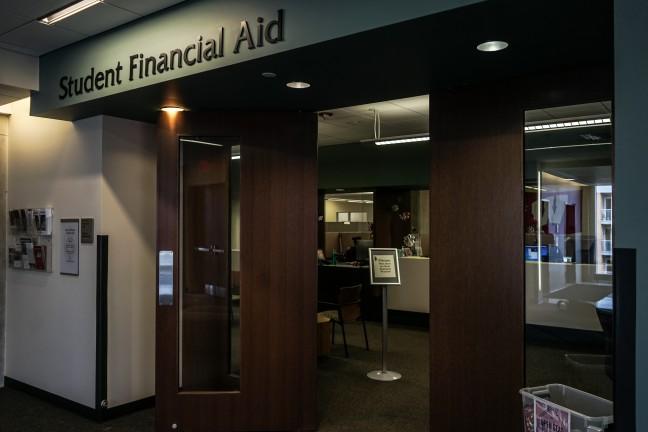Derek Kindle, who was appointed to lead University of Wisconsin’s financial aid department this summer, said he’s devoted to helping students — but needs support from legislators.
In order to address an increase in borrowing and future student loan debt, Kindle said the Office of Student Financial Aid looks to become more responsive and help students plan their finances better. He said members of the office will engage in more outreach for students seeking financial aid.
“Our goal is to make financial aid more reliable for both prospective and continuing students,” Kindle said.
According to a 2015 report by the Institute for College Access and Success, Wisconsin ranked third in the nation for number of college students graduating with student loan debt. Seventy percent of Wisconsin graduates have debt when they leave college.
The cost of knowledge: Average UW student graduates with nearly $30,000 in loan debt
Kindle said no two individuals will have the same needs when it comes to financial aid. He said UW students have a variety of needs that are based on factors like socioeconomic background, for example.
“I think the need is varied, with some having a high need, some low and some none,” Kindle said. “It’s a spectrum.”
Most students seeking aid do not fall in the high need category, Kindle said. He said he predicts more UW students will apply for financial aid over the next few years, whether it is through loans or scholarships. This brings greater student debt to the table, he said.
Most financial aid awarded to UW students is need-based, Kindle said. He said UW will look toward accommodating a variety of needs through merit-based and other non-need-based aid as well.
University seeks to increase merit aid, expert says it’s an ‘arms race’ for enrollment
Additionally, Kindle said one of his main aims as financial aid director is to reduce the stigma attached to receiving financial aid. Financial aid should be viewed as a “reasonable means” to assist in a student’s college experience, he said.
Currently, most of the funding for financial aid comes from federal sources, Kindle said. He said UW will continue to work toward increasing scholarship and grant aid from private resources, including donations, as well.
State legislators also play a key role in deciding how much money goes toward aid in each biennial budget.
Gov. Scott Walker’s college affordability package signed this spring will give grants to students in technical colleges, provide emergency grants to students in crisis, increase student internship opportunities and require financial literacy education. Walker said in a statement making higher education more affordable is “one of the most important things” to Wisconsin students and families and would move Wisconsin forward.
These are the college affordability bills Walker just signed into law
Republican legislators like Sen. Howard Marklein, R-Spring Green, responded positively to Walker’s affordability package and said in a statement that it will help students across the state better deal with college costs.
Walker also recently wrote that he will write another tuition freeze, which has been in place in the UW system for the last four years, into the next budget for at least the next school year. Whether or not he will suggest it stay in place for the 2018-19 school year is still in question. According to Walker, the freeze has saved students an average of $6,311 annually.
But Democratic legislators said viable solutions to the student debt crisis are severely lacking in Wisconsin. Rep. Katrina Shankland, D-Stevens Point, has said in the past that Walker’s affordability package won’t address the student loan debt crisis at all. Rep. Melissa Sargent, D-Madison, has said such debt inhibits Wisconsin’s future leaders.
Democratic legislators have proposed policies that would allow students to refinance loans and increase need-based aid, among other proposals. So far, none of these have made it through the Legislature.
Walker’s College Affordability Package passes through committee
Kindle said the Office of Student Financial Aid is always concerned about how any legislation will impact students.
“We always look toward legislation that is supportive of student value and experience,” Kindle said.
Correction: A previous version of this article incorrectly stated that donations were a source of funding. Additionally, the article incorrectly cited Kindle as a source for a comment on the biennial budget. The Badger Herald regrets this error.













